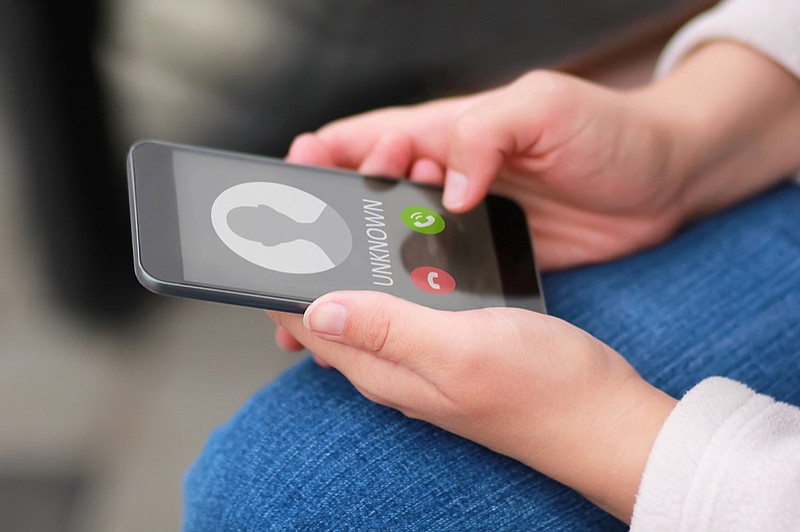The COVID-19 pandemic saw a rise in reports of scammers pretending to be from government agencies. While reports have slowed since peaking in early 2021, Better Business Bureau's research shows that victims have recently lost considerably more money to these schemes.
The bureau warns people to use caution if they are contacted by a government agency demanding money or offering a government grant for a fee.
The Federal Trade Commission shows reports of losses soared to more than $445 million in government impostor scams, up from $175.4 million reported in 2020. This includes government grant schemes, which the bureau's Scam Tracker data shows have increased from a median loss of $800 per victim to $1,000 per victim. Scam Tracker reports also showed government impostor scams were the second-most reported scams by businesses in 2021.
Signs of a government impostor scheme
In government impostor schemes, scammers may spoof a legitimate government agency phone number to call a potential victim. Others turn to social media. They have three primary approaches - they indicate they're calling to help you obtain grants, avoid identity theft or account issues, or they threaten arrest to scare a consumer into paying funds they don't owe.
Here are some telltale signs of a government impostor scheme:
- A caller claims to be from the Internal Revenue Service or your local courthouse and says you will be arrested if you don't resolve an outstanding balance.
- Scammers typically ask for payment in gift cards to rectify the problem, but more scammers are turning to cryptocurrency. You may also be asked to wire funds or send payment through a cash app - anything that won't leave a paper trail.
- Some callers claim to be from the Social Security Administration, Medicare, or similar agencies, and indicate your social security number or personal information has been stolen. Then they ask for you to confirm your Social Security number, Medicare account number or other personal information, claiming they need it to help you. In reality, they want this to help them steal your identity!
- In fake government grant scams, impostors tend to reach out to people after they've hacked an acquaintance's social media account. They usually claim they saw your name on a grant approval list, or encourage you to apply for a grant by texting a number. That leads to you paying a "small fee" to allegedly receive your grant. Once the first payment is sent, the scammer will likely continue to add various fees but never deliver any money.
FTC statistics from 2021 show that people young and old can fall prey to government impostors or grant scams, but the amount of loss increases with age. Several victims that the Better Business Bureau interviewed had losses ranging from $2,550 to more than $4,000.
Most of these scammers live overseas. The bureau's initial study on this topic showed many of these government-related scams originated in India. They buy lead lists with names, phone numbers and other information about their targets and use Voice over Internet Protocol systems to make their calls. Scammers can spoof numbers, making it appear as if they are calling from a government agency or anyone whose identity they are assuming.
Tips to avoid government impostor or grant scams
Will a federal agent call you? Government agencies like the Social Security Administration, IRS or FBI do not call people with threats or promises of money.
- Do not trust your caller ID, as scammers can spoof legitimate numbers. If you receive a phone call, check with the real agency by going to the agency's website directly, then click "contact us" to find out how to connect. Do not trust numbers that may be included in emails or text messages.
- Do not click on links inside a text message or email purporting to be from a government agency.
- Social Security numbers are never "suspended." The Social Security Administration will never threaten to arrest you because of an identity theft problem.
- Never provide your bank account or other personal information to anyone who calls you claiming to be associated with the IRS. The IRS generally makes its first contact with people by regular mail – not by phone – about taxes.
- Never pay with a gift card, wire transfer or cryptocurrency. No government agency will take those forms of payment.
- Don't pay for a "free" government grant. If you must pay money for a "free" grant, it isn't free. You can visit Grants.gov's list of official grants.
How do you report a suspicious email or call?
- Better Business Bureau: File a report with the bureau's Scam Tracker.
- Social Security: The Social Security Administration Inspector General Office has its own online form for complaints about frauds impersonating the Social Security Administration.
- IRS: The IRS advises people to fill out the "IRS Impersonation Scam" form on the website of the U.S. Treasury Inspector General for Tax Administration, tigta.gov, or to call the office at 1-800-366-4484.
- Federal Trade Commission: 877-FTC-HELP or www.reportfraud.ftc.gov.
- FBI's Internet Crime Complaint Center: Online at www.ic3.gov.
- Your cellphone carrier: Take advantage of free services your phone provider may offer, such as scam call identification and blocking, and ID monitoring. See if there's an option for a second phone number to give out to businesses, saving your main number for close friends or use a new number if you get too many spam calls.
- Facebook: click on the three dots at the top right on any post. Select "Find support or report post" to report a scam.
Michele Mason is president of the Better Business Bureau in Chattanooga.
